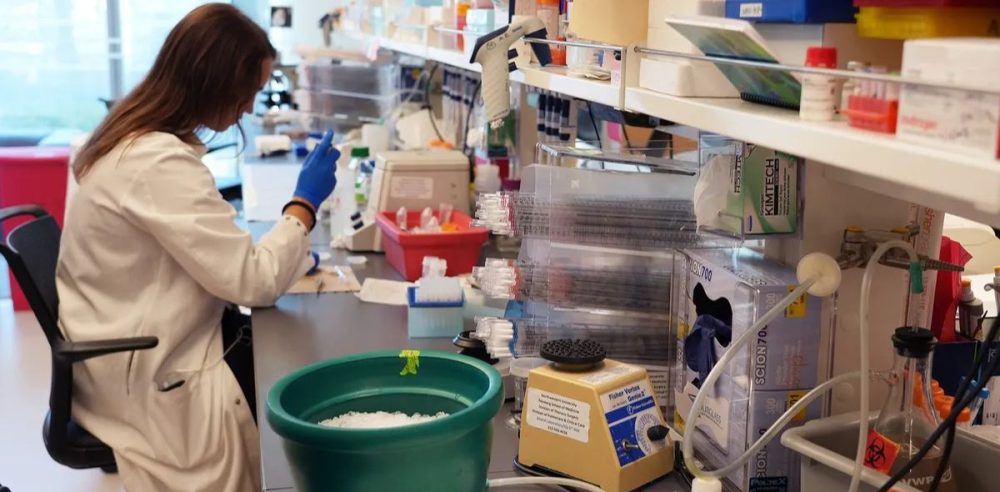A surprising new study reveals that COVID-19 may promote a type of immune cell that can fight against cancer.
New research links COVID-19 infection with cancer regression, potentially spurring a new form of treatment for the disease.
The SARS-CoV-2 virus, which causes COVID, is comprised of an RNA (ribonucleic acid) that was found to promote the creation of immune cells with anti-cancer properties. Unlike typical immune cells, these cells could move into the blood vessels and tumors before attacking and shrinking cancerous tumors.
The authors of the study noted that the effect was driven by severe COVID-19, with the most effective attacks working against melanoma, lung cancer, breast cancer, and colon cancer.
“This discovery opens up a new avenue for cancer treatment. … [It] offers hope that we might be able to use this approach to benefit patients with advanced cancers who have not responded to other treatments,” said senior author and chief of thoracic surgery at Northwestern Medicine, Ankit Bharat, MD.
The study’s authors urge caution since the initial findings are all based on animal models. As a next step, Bharat says clinical trials are needed.
“We are in the early stages, but the potential to transform cancer treatment is there,” said Bharat.
Dr. Marc Siegel, clinical professor of medicine at NYU Langone Health, who was not involved in the study, said the study is promising despite being limited to animals.
“It reminds us that viruses cause inflammation and rev up the immune system, which can either increase your risk of certain cancers or, paradoxically, cause certain cancers to shrink by activating immune cells against them,” he told Fox News Digital.
This is not the first time COVID and cancer have been linked. As previously reported in The Dallas Express, the co-founders of BioNTech, Uğur Şahin and Özlem Türeci, suspect that the same messenger RNA (mRNA) vaccine technology they produced to fight COVID-19 could one day be used to target cancer cells.
The findings of the latest study were published in the Journal of Clinical Investigation on November 15.


